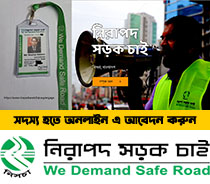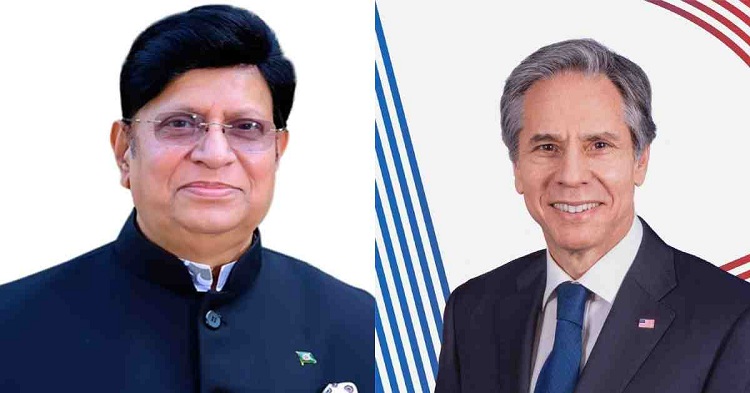Bangladesh will seek wider and diversified cooperation from the United States and demand again the withdrawal of sanctions imposed on its elite force RAB as the minister-level bilateral meeting is set to take place in Washington on April 4.
Foreign Minister Dr AK Abdul Momen is scheduled to leave for the USA on Saturday night (tonight) to hold a bilateral meeting with his US counterpart Antony J. Blinken at the US Department of State on the very day of the 50th anniversary of the establishment of diplomatic relations.
“We’ll raise it (reconsidering sanctions),” said Dr Momen ahead of his visit, reiterating that they (Rab members) are very efficient and effective; and by and large they are free from corruption and there should be a positive response from the US side.
Terming Bangladesh a peaceful and peace-loving country, the Foreign Minister said Bangladesh is less interested in defence procurement from the US but wants to engage in those areas which ensure people’s welfare.
During US Under Secretary of State for Political Affairs Victoria Nuland’s recent visit, the US side shared a ‘draft’ on the General Security of Military Information Agreement (GSOMIA) which is seen as a ‘gateway’ to do more on the security front.
“We’re very confident that we’ll be able to get the issue settled so that we can do more on the security side together,” she told reporters during a joint media briefing in Dhaka.
Nuland indicated the two countries would be involved in series of engagements this year and described the partnership dialogue as the appetizer on a very big feast that they are going to have this year.
The United States is pushing to conclude certain foundational defense agreements – GSOMIA and Acquisition and Cross Servicing Agreement (ACSA), which are “essential” to enabling a closer defense relationship, expanding opportunities for defense trade, information sharing, and military-to-military cooperation between our two countries.
“We’ve neither dropped (those proposals) nor accepted. We’re still examining,” Moemn said, adding that Bangladesh is a very peaceful and peace-loving country with very friendly relations with all neighbors and does not want to create any armory as Bangladesh, what he says, does not need it.
The Foreign Minister reiterated that Bangabandhu’s daughter and Prime Minister Sheikh Hasina never surrenders to any pressure and she does things which ensure people’s welfare.
Momen said they understand it (arms sales) is a big business for the USA but suggested that the two countries can explore other areas except this.
He said there are many new areas of cooperation – technology transfer, pharmaceuticals, blue economy, food security and climate change – where the US side can come forward. “We’re willing to diversify our trade and investment.”
Bangladesh will invite US investments in special economic zones and hi-tech parks in the country.
Responding to a question, the Foreign Minister said Bangladesh will also raise the issue of sheltering Rashed Chowdhury, a convicted killer of Father of the Nation Bangabandhu Sheikh Mujibur Rahman, and will demand of his handing him over to Bangladesh.
Among other issues, the Foreign Minister said Rohingya issue will also come up.
Issues related to the Indo-Pacific Strategy are also likely to be discussed during Foreign Minister Momen’s visit.
US Ambassador to Bangladesh Peter Haas said the Indo-Pacific Strategy is a positive, shared vision for creating a region where all nations – Bangladesh, China, Sri Lanka, Indonesia, the United States, and each and every other county in the region – can thrive.
He said economic relations between the two countries are expanding quickly including through an upcoming visit from a high-level delegation made up of US businesses coming here to investigate opportunities in Bangladesh.
Ambassador Haas said the United States is the largest source of foreign direct investment in Bangladesh.
“As Ambassador, I commit to work with Bangladesh to build an attractive investment environment and support U.S. investors to enter new sectors for the benefit of all our people,” he said.
At President Biden’s direction, Ambassador Haas said, they are developing a comprehensive Indo-Pacific Economic Framework, which will include shared objectives in key areas: climate and clean energy, fair trade facilitation, resilient supply chains, and the digital economy.
“I look forward to working on these issues with the people and the government of Bangladesh in the coming months,” he said.



